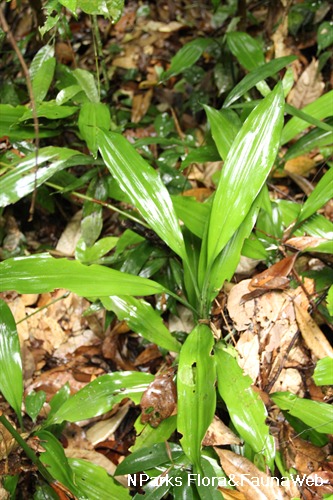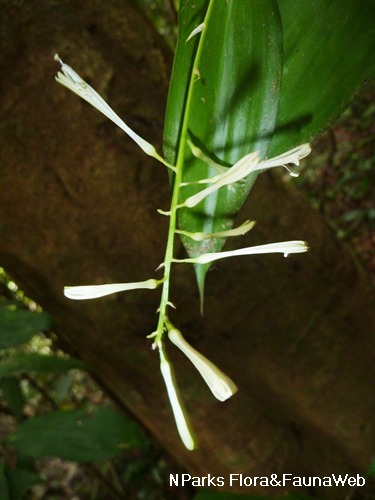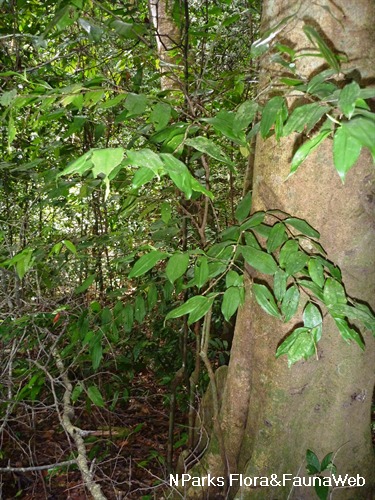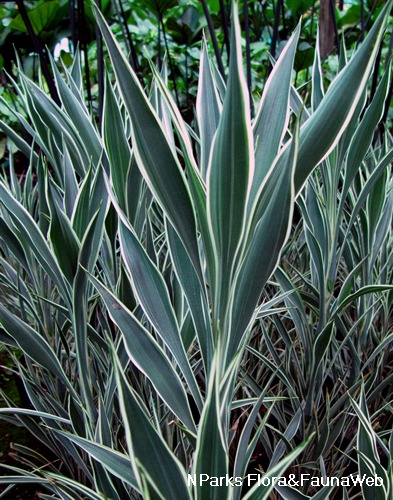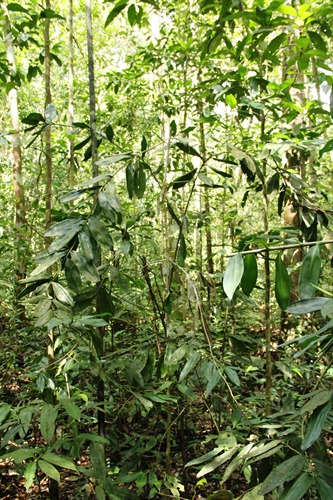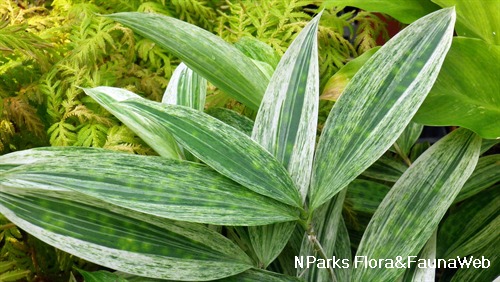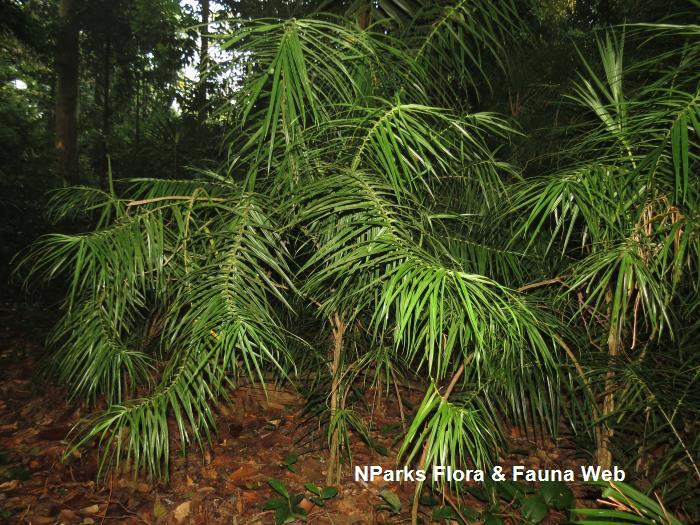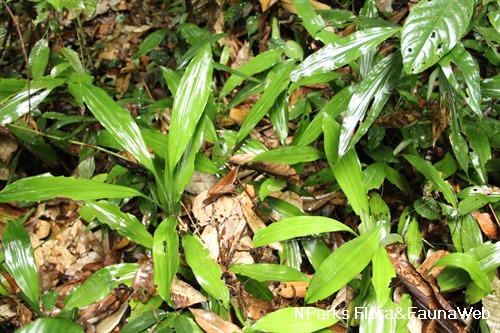
Back
Dracaena elliptica Thunb.
| Family Name: | Asparagaceae |
| Synonyms: | Dracaena atropurpurea, Dracaena atropurpurea var. gracilis, Dracaena atropurpurea var. kurzii |
| Common Name: | 细枝龙血树 |
Name
Classifications and Characteristics
| Plant Division | Angiosperms (Flowering Seed Plants) (Monocotyledon) |
|---|---|
| Plant Growth Form | Shrub |
| Lifespan (in Singapore) | Perennial |
| Mode of Nutrition | Autotrophic |
| Plant Shape | Irregular |
| Maximum Height | 5 m |
Biogeography
| Native Distribution | China, Thailand, Myanmar, Vietnam, Laos, Peninsular Malaysia, Singapore, and Indonesia |
|---|---|
| Native Habitat | Terrestrial |
| Local Conservation Status | Native to Singapore (Critically Endangered (CR)) |
Description and Ethnobotany
| Growth Form | It is a slender-stemmed, branched shrub, up to 5 m tall. It can be easily identified from the light green leaves that have distinct parallel veins across its length. |
|---|---|
| Foliage | Its spirally arranged, stalked, leaves have leathery leaf blades that are usually linear-lance-shaped or narrowly oval-lance-shaped, light green on both sides, 10–15 by 2–3 cm, and with distinct parallel veins. |
| Flowers | Its flowers are greenish-white, sometimes flushed red or purple, 2–2.3 cm long, and arranged singly, rarely in pairs, on an inflorescence. |
| Fruit | Its fruits are round or 2–3-lobed, orange-red when ripe, and about 1.3 cm across. |
| Habitat | It grows in low to highland forests. It occurs locally in the vicinity of Upper Seletar Reservoir, along Chestnut Avenue, and in Nee Soon Swamp Forest. |
| Associated Fauna | Its flowers are insect-pollinated while its fruits and seeds are probably eaten and dispersed by birds or mammals. |
| Cultivation | It may be suitable for parks. It can be propagated by seed and stem cuttings. |
| Etymology | The genus Dracaena is from Greek that means a dragon, referring to the bright red dried red resin, called dragon’s blood, obtained from various species including those of Dracaena. The specific epithet elliptica is from Latin meaning elliptic, referring to the shape of the leaves. |
Landscaping Features
| Landscaping | It may be suitable for parks. |
|---|---|
| Desirable Plant Features | Ornamental Foliage |
| Landscape Uses | General, Parks & Gardens, Small Gardens |
| Thematic Landscaping | Zen / Minimalist Garden |
Plant Care and Propagation
| Light Preference | Semi-Shade |
|---|---|
| Water Preference | Lots of Water, Moderate Water |
| Rootzone Tolerance | Moist Soils, Well-Drained Soils |
| Propagation Method | Seed, Stem Cutting |
Foliar
| Foliage Retention | Evergreen |
|---|---|
| Mature Foliage Colour(s) | Green - Light Green |
| Mature Foliage Texture(s) | Leathery |
| Prominent Young Flush Colour(s) | Green - Light Green |
| Young Flush Texture(s) | Leathery |
| Foliar Type | Simple / Unifoliate |
| Foliar Arrangement Along Stem | Spiral |
| Foliar Attachment to Stem | Petiolate |
| Foliar Shape(s) | Non-Palm Foliage (Lanceolate) |
| Foliar Venation | Parallel |
| Foliar Margin | Entire |
| Foliar Apex - Tip | Acuminate |
| Foliar Base | Acute |
Floral (Angiosperm)
| Flower Colour(s) | Cream / Off-White, Green, Purple, Red, White |
|---|---|
| Flower Grouping | Cluster / Inflorescence |
| Flower Location | Terminal |
| Inflorescence Type | Panicle |
| Flower Colour(s) Remarks | Greenish White |
Fruit, Seed and Spore
| Mature Fruit Colour(s) | Orange, Red |
|---|---|
| Fruit Classification | Simple Fruit |
| Fruit Type | Fleshy Fruit , Non-Accessory Fruit |
Image Repository
Others
| Master ID | 31039 |
|---|---|
| Species ID | 5426 |
| Flora Disclaimer | The information in this website has been compiled from reliable sources, such as reference works on medicinal plants. It is not a substitute for medical advice or treatment and NParks does not purport to provide any medical advice. Readers should always consult his/her physician before using or consuming a plant for medicinal purposes. |

